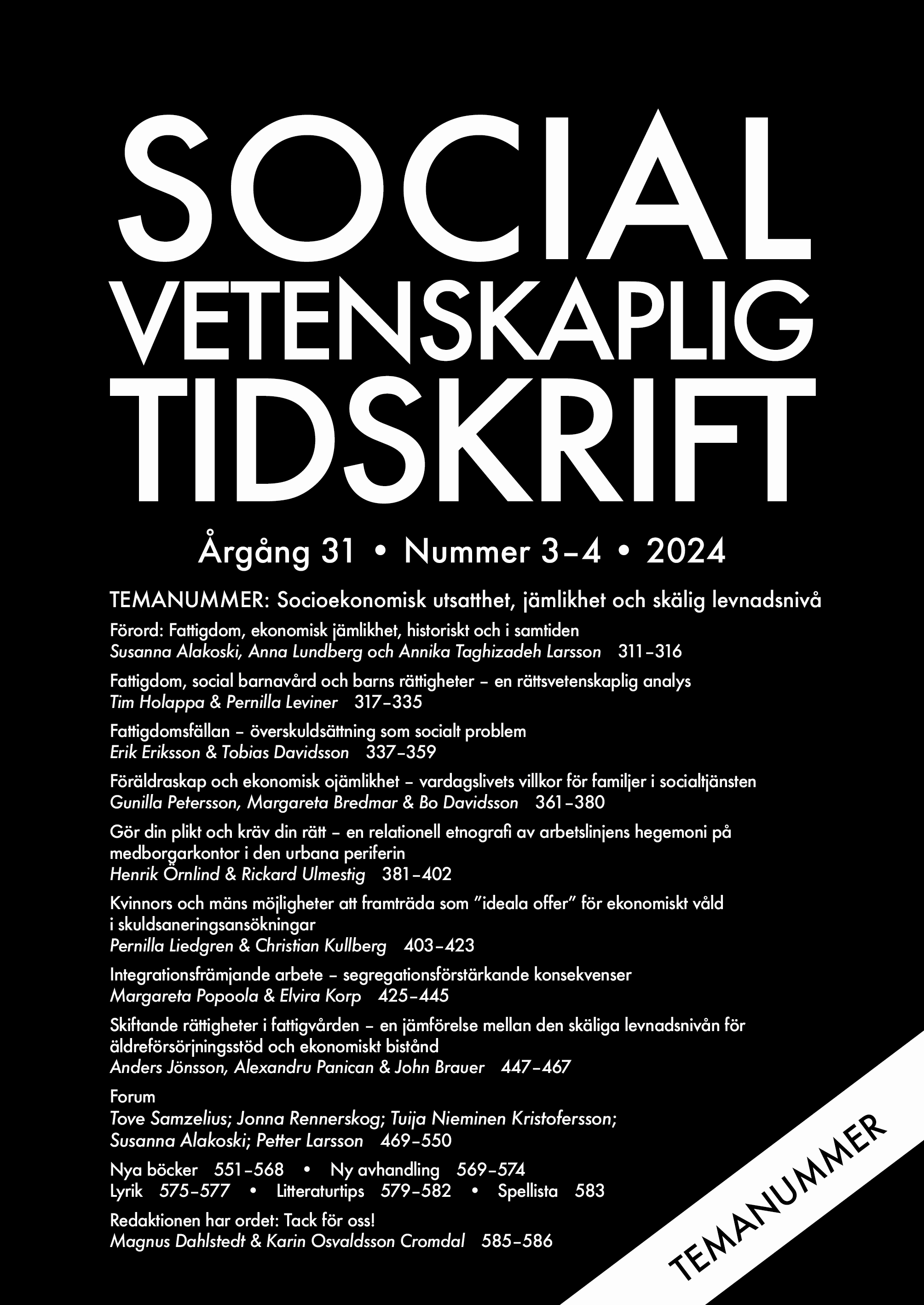Fattigdom, social barnavård och barns rättigheter
– en rättsvetenskaplig analys
DOI:
https://doi.org/10.3384/SVT.2024.31.3-4.5611Nyckelord:
child poverty, child protection, child welfare, children’s rightsAbstract
Poverty, child protection and rights – a legal analysis
According to the UN Convention on the Rights of the Child, children have the right to a standard of living adequate for their development. The responsibility to realize this lies primarily with parents, but states have a duty to support parents and an ultimate responsibility to protect children from harm. Yet, studies show that children in Sweden are affected by economic vulnerability, and that the right to financial support is conditional, leading to a risk that children's needs are not being met. This article looks at how the social services in Sweden should deal with child poverty. From a legal perspective it is examined what applies in situations where children do not have their basic needs met and where parents are not granted financial support. An important question is whether there are legal prerequisites to take children into care in such a situation. It is shown that there are no explicit legal provisions legitimizing taking children into care solely on the basis of poverty. Further, case law of the European Court of Human Rights, and statements from the UN Committee on the Rights of the Child, indicate that taking children into care because of poverty is a disproportionate restriction of children's rights. However, the national legal framework is unclear. Children are to be protected from harm, but the parents who do not meet the conditions set out by the social services are denied financial support. Overall, this means that there is a risk that children will be taken into care as a result of poverty, even though the needs could be met through financial support. The article discusses the need for legal clarifications and reforms in order to better protect children’s needs and rights.
Downloads
Publicerad
Referera så här
Nummer
Sektion
Licens
Copyright (c) 2024 Tim Holappa , Pernilla Leviner

Det här verket är licensierat under en Creative Commons Erkännande 4.0 Internationell-licens.
Allt material i Socialvetenskaplig tidskrift publiceras sedan 2022 (Vol 28 Nr 2) med omedelbar öppen tillgång (open access), under Creative Commons-licensen CC BY 4.0. Upphovsrätten till innehållet tillhör respektive författare.
Allt innehåll i tidskriften är fritt tillgängligt utan kostnad och får fritt läsas, laddas ned, kopieras, delas, skrivas ut och länkas. När innehållet används måste författare, källa och licens anges. Författaren kan fritt göra sin publicerade text tillgänglig på institutionella och internetbaserade arkiv, exempelvis sitt lärosätes digitala arkiv eller andra tjänster för detta.
Inga publiceringsavgifter tas ut vid publicering i Socialvetenskaplig tidskrift.


